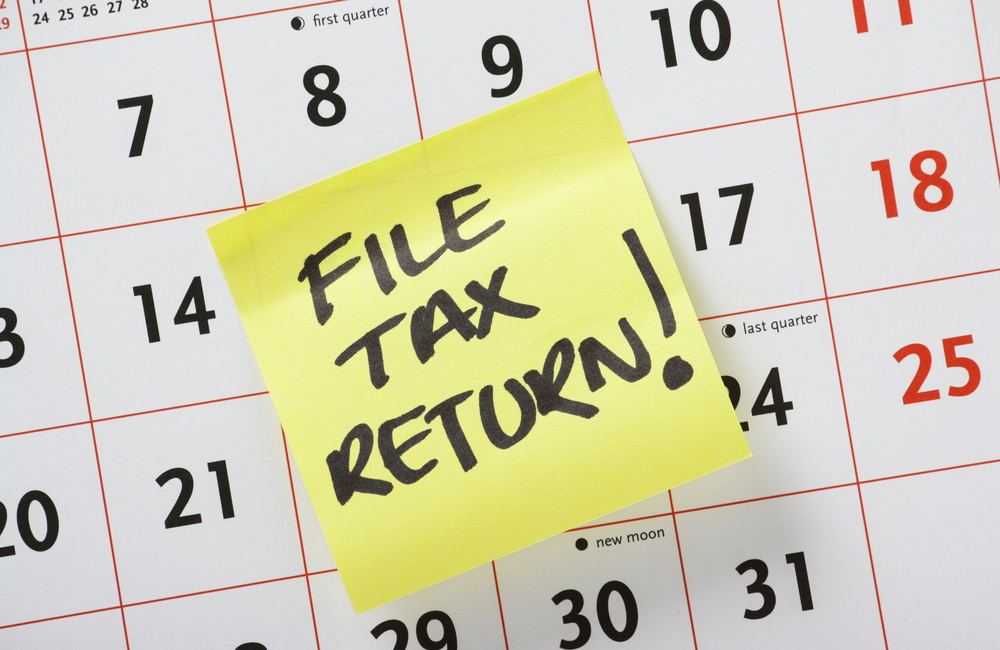News
Five tips to meet the tax return deadline tonight

You have until 11:59pm tonight, Tuesday 31 January, to submit your self-assessment return and pay any tax owed. Here are five tips for last-minute filers.
An estimated 12 million returns for the 2021/22 tax year are due to be submitted to HMRC by the 31 January 2023 deadline.
Last week, more than three million were still outstanding. If you have left it until the last minute, here are five tips to help you file on time, and pay any tax owed:
1) Ignorance isn’t bliss
Tax returns aren’t just for the rich. While most Brits don’t need to file as tax is automatically deducted from wages, pensions or savings, for others, a tax return is a must.
This includes those:
- Who were self-employed and earned more than £1,000
- Who earned more than £100,000 in taxable income
- Who earned money from renting out property or other untaxed income such as tips and commission
- Who earned income from savings, investments and dividends
- Who earned income from overseas or who lived abroad and had a UK income
- Who were a partner in a business partnership
- Who are employed but use their own money to travel and other job expenses
- Who claimed some Covid-19 grant or support payments
- Who need to claim income tax reliefs such as money paid into a personal pension, business expenses if you are self-employed and charitable donations
- Who earned more than £50,000 and you or your partner claims child benefit.
If you’re unsure if you need to file, check HMRC’s online tool.
2) Don’t fret about how to work out your tax bill
By filing online, your tax will be calculated for you. But, this does rely on you providing all the correct information, according to Sarah Hollowell, tax & trustee services director at Killik & Co.
She says it’s a good idea to familiarise yourself with all the reliefs and allowances that are available to you so that you have at least a rough indication of what you should be paying. As an example, be aware of income tax thresholds, NI contributions, the Personal Savings Allowance etc.
3) There are options if you can’t afford to pay
If your tax bill is unaffordable don’t panic. HMRC has options for those in financial distress so burying your head in the sand and racking up fines is not the answer, Alice Haine, personal finance analyst at Bestinvest says.
The Time to Pay scheme is a payment plan for those who owe less than £30,000, are within 60 days of the payment deadline and plan to clear the debt within 12 months. To be eligible, you must not have any other debts or payment plans with HMRC and be aware you will be expected to tap into your own savings and assets to reduce the debt.
HMRC will want to know how much you earn, the amount you typically spend per month and how much you can afford to repay. However, be aware that interest is charged on this amount, currently at 6%.
4) Don’t forget to declare Covid-19 payments
During the Covid-19 pandemic, the Government launched a number of grants and support payments for business owners and the self-employed. For the 2.9 million people who claimed at least one Self-Employment Income Support Scheme (SEISS) payment in the 2021/22 tax year, these are taxable and must be declared in the tax return.
Other Covid-19 support scheme payments should also be declared by the self-employed, in a partnership or in a business. These include the SEISS, the Coronavirus Job Retention Scheme and other Covid-19 grants and support payments such as Eat Out to Help Out and test and trace or self-isolation grants, Haine says.
Abuse of Covid-19 support schemes cost the Treasury several billion pounds, which was “embarrassing for the Government”, so HMRC is likely to crack down on self-assessors who omit this information, intentionally or otherwise, Haine warns.
5) Double check your return before you send it
Have you done your calculations properly and have you declared everything? HMRC can charge penalties if you make an error on the return or any other paperwork you submit even if they were made in good faith.
Just last week, HMRC chief executive, Jim Harra, commented on careless tax returns, stating “if your error was as a result of carelessness, then legislation says that a penalty could apply in those circumstances”.
These include understating or misrepresenting how much tax you owe. If you have a reasonable excuse for this error, then you may be able to appeal any fine imposed. If you cannot appeal or lose your appeal, the penalty you pay depends on the type of behaviour around the error, whether you notified HMRC or not, and a percentage of the potential lost revenue.
Once you’ve filed your 2021/22 return, you can amend it anytime from 72 hours after you’ve filed it until 31 January 2024.